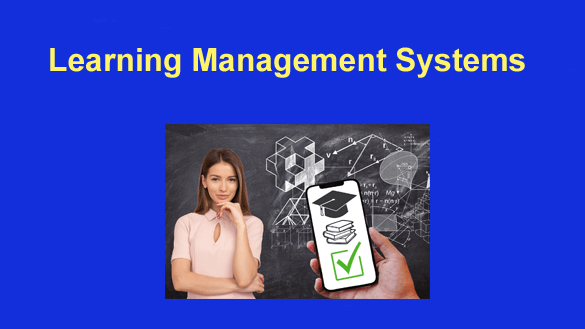 In today’s changing world, driven by technology, education has evolved significantly.
In today’s changing world, driven by technology, education has evolved significantly.
Traditional classroom setups now include making education more accessible to an audience. An essential component of this digital learning landscape is a Learning Management System (LMS).
What exactly is an LMS? Why does it hold significance? In this post, we’ll delve into what a Learning Management System entails and why its role is increasingly crucial in the realm of education.
Understanding Learning Management Systems
A Learning Management System, commonly known as an LMS, is a software tool utilized by institutions and businesses to oversee and deliver courses or training programs.
Essentially, it serves as a platform that facilitates interaction among administrators, instructors, and learners within a virtual learning environment.
1 – Streamlined Administrative Functions
A key feature of top LMS software is its administration capabilities. This functionality empowers administrators to create and manage courses efficiently. Through the system, they can organize course materials, assign tasks or assessments to learners, monitor progress and performance metrics, and generate reports for analysis.
2 – Managing Courses and Content
An LMS offers teachers the tools to upload course materials such as videos, audio, documents, presentations, quizzes, or assignment files that learners can access at their convenience with an internet connection.
Furthermore, instructors can organize content into modules or units, making it easy for learners to follow the curriculum. The flexibility to update or modify content ensures that courses remain relevant and up-to-date with evolving learning objectives and industry standards.
3 – Engaging Learners
One of the advantages of an LMS is its ability to keep learners engaged in an environment. It includes features like discussion forums for interaction among learners and instructors, gamification elements such as badges and leaderboards to encourage participation, interactive quizzes or simulations for learning, collaboration tools for group projects or discussions, real-time feedback from instructors through messaging or video calls, customizable dashboards for progress tracking and reminders for assignments.
4 – valuation and Feedback
Learning Management Systems offer assessment tools like quizzes or exams that can be graded manually or automatically. Instructors can create types of assessments, from multiple-choice questions to essays or practical assignments. The LMS also allows real-time feedback and constructive comments without the need for paper-based evaluations.
Why is it significant?
The growing importance of Learning Management Systems is influenced by factors that are shaping today’s landscape.
1 – Flexibility and Convenience
A Learning Management System (LMS) offers students the freedom to access course materials whenever and wherever they have an internet connection. This is particularly beneficial for individuals with schedules residing in locations or professionals looking to advance their education.
2 – Engaging Learning Experience
Gone are the days of passive textbook learning. LMS platforms empower students to actively interact with course content through features like multimedia resources, gamified elements, and collaborative tools. This not only boosts knowledge retention but also enhances overall performance and satisfaction.
3 – Tailored Learning Journeys
With an LMS, educators can customize content based on each student’s requirements by offering learning paths. Students can progress at their own speed using modules that adjust according to their performance levels, strengths, and weaknesses. Such customization fosters greater and improves success rates.
4 – Effective Analysis
In an online learning setting supported by an LMS, tracking student progress is more efficient than before. Instructors can oversee achievements, pinpoint areas needing improvement or extra support, and intervene promptly when necessary. Furthermore, analyzing data collected through the system enables institutions to make decisions to enhance teaching approaches and course structures.
Summary
With advancements in technology, online learning has become increasingly accessible and impactful. Learning Management Systems play a role by providing a platform to manage courses effectively and engaging learners through interactive features that tailor their learning experience.
As education progresses, the significance of Learning Management Systems in supporting learning settings will continue to expand. For educators, students, or organizations seeking to adapt to the changing landscape of education, considering investment in an LMS is certainly an option.